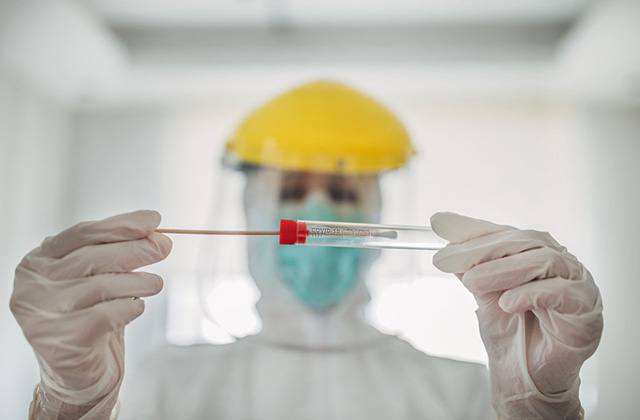
Important Medical Tests Men Should Not Ignore
As a man, if you want to take care of your health, you have to take the crucial medical tests that will clear you from major diseases, especially the ones affecting your gender. Undergoing the proper screening will let you detect symptoms of ailments while they are still in the early stages.
Early detection can most often make a difference when it comes to treatment. There are a lot of dreaded diseases that can be stopped if found in its early stages. For example, you can have a mastectomy to prevent the spread of breast cancer. Treating diabetes before it worsens can also prevent you from getting complications like blindness and impotence.
That is why you should find a qualified physician who can advise you to get these health care screenings early on. Here are some important medical tests for men that you should not ignore:
Lipid Profile
This test consists of a series of blood tests to check the levels of lipids like triglyceride and cholesterol. A lipid profile test can also find any trace of genetic ailments, heart disease, pancreatic illness, and more. It reflects the amount of good cholesterol (HDL) or bad cholesterol (LDL) in your body. A physically fit man will have balanced HDL and LDL levels.
A triglyceride is a form of lipid which is linked to diabetes. Elevated triglyceride levels with unmanaged diabetes may mean higher chances of contracting coronary artery ailments, stroke, and heart attack because of Atherogenic Diabetic Dyslipidemia.
Blood Pressure
Hypertension or high blood pressure is one of the most common conditions among men. It occurs when your heart has to work double-time to distribute the blood in your body. If left untreated, this can lead to stroke, heart disease, and other life-threatening cardiovascular issues. Regular monitoring of your blood pressure can help detect hypertension and early detection can mean early treatment of the disease. Your family doctor can assist in managing or eliminating hypertension through lifestyle changes, habit corrections, stress reduction, and medical maintenance.
To control blood pressure, men need to have this checked every year. If you already have a history of hypertension, you will need to have this checked more often, as per your doctor’s advice.
Prostate Cancer
Screenings to detect prostate cancer include a digital rectal examination (DRE) and/or a prostate-specific antigen (PSA) test. In the DRA, a doctor will insert a finger into your rectum to check if your prostate gland has grown or developed lumps. In the PSA test, your doctor checks if a protein released by the prostate gland is present in high levels in your blood. At your doctor’s recommendation, you may undergo one or both tests to find out if you have early signs of prostate cancer. Some governments and health experts recommend against the regular use of the PSA test, but you can talk to your physician regarding the advantages and disadvantages of taking this test. Talks about this test can start at 50 years old, for those with average-risk; 45 years old, for those with high risk; and 40 years old for men with a history of family cancer in the family.
Testicular Cancer
The testicles are the glands that manufacture sperm. Testicular cancer is a rare type of cancer that occurs in men aging 20 to 54 years old. Health experts advise you to get this test during your routine physical examination. Additional screening should be done for men who have a family history of testicular cancer or those with testicles that have not descended yet. You can also do regular self-exams by observing and feeling your testicles for any presence of bumps, lumps, or modifications in shape or sizes.
Blood Sugar
Diabetes is a condition when the body fails to produce insulin, the hormone responsible for regulating sugar levels in the blood. If untreated, it is known to cause heart disease, stroke, eye ailments, kidney problems, recurring infections or wounds, and other health concerns. But, if detected early, it is entirely manageable.
If you are experiencing intense thirst, persistent urination, hunger, quick weight loss, or tingling hands or feet, you should coordinate with your family physician about undergoing a glucose test. The test will be able to detect the amount of sugar in your blood.
If you have a family history of diabetes, you have all the more reason to get checked. One random test is not enough to diagnose you of the disease. Your doctor may schedule a series of tests to confirm that you really have it and he or she may also check your HbA1C levels.
Kidney Function
The kidney is also one of the important organs in our body. The kidneys play a role in cleaning our blood and maintaining its proper pH value and levels of electrolyte. A kidney function test will see if both your organs are functioning properly. Indicators of loss of kidney function include the presence of creatinine, urea, nitrogen, and blood urea at high levels. A urine analysis may also be recommended to check if there is glucose, albumin, white blood cells, and red blood cells, which may point to problems in the kidney. If you are thinking about your health nowadays, it is best to consult a doctor about these tests. You can visit a walk in clinic Hamilton to talk to a physician and schedule these examinations. Or, you can also find an online doctor to consult with if you want a faster and more convenient way to avail healthcare.
